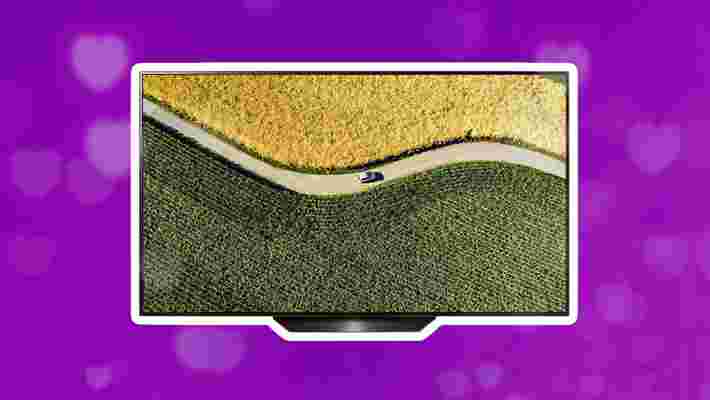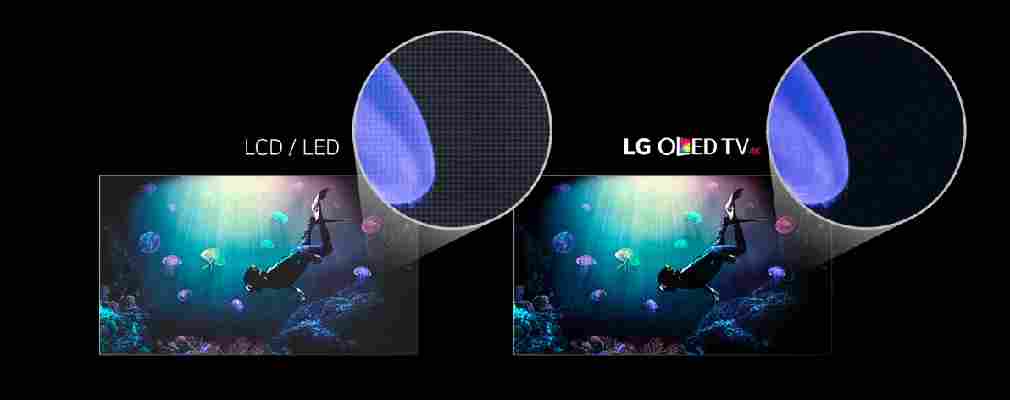
We’ve all been told a million times that money and goods don’t make us happy, but as the proud owner of a 55-inch LG B9 OLED TV I know that’s a blatant lie.

After hearing TV nerds, and a bunch of friends raving about the amazing image quality of OLED TVs, I finally caved in and bought my precious television in January. And it’s made my life infinitely better.
If you’re in the market for a new TV you basically have two options: a liquid-crystal display (LCD) or an organic light-emitting diode (OLED) one. The former is the cheaper, more common technology that’s probably used in your laptop or monitor. Their image quality is alright for everyday use, but the contrast and brightness are miles behind OLEDs.
What actually is an OLED screen?
I’m no scientist, but from what I understand, OLEDs use an organic compound that emits light when it gets hit by an electric current. Because each individual OLED pixel emits light, it doesn’t need a backlight like traditional LCD screens. This means the black pixels are absolutely pitch black, the whites hurt your eyes, and everything in between gets displayed beautifully, resulting in near-perfect contrast and amazing colors.
Basically, the sort of contrast you normally only see in movie theaters.
When I bought my previous TV a couple of years back, OLEDs weren’t affordable at all. So I went for a relatively cheap 4K LCD. It was decent and lasted me for a couple of years, but I could never shake the urge to upgrade. The colors weren’t popping, the blacks were more like dim grays, and the input lag was noticeable in fast-paced video games like Call of Duty .


The LG C9 is the model everyone will tell you to get. It has everything you could desire from a high-end TV (Dolby Vision, 120hz, HDMI 2.1), but it was always slightly outside of my price range. Fortunately, LG released the slightly cheaper B9 last October
The B9 and the C9 are almost identical, but the C9 has a faster processor (better image processing for low quality content) and has a higher peak brightness. The differences are negligible for most people.
The image quality on the B9 is nothing short of phenomenal. 4K Dolby Vision stuff on Netflix looks amazing, but 1080p content looks great too, and the 14ms input lag makes gaming a delight. It’s future-proofed for the next generation of consoles thanks to its Gsync/Freesync support, something that PC gamers can benefit from right now.
I’ve had my B9 for about four months now, and the image quality still blows me away. Almost every single day I have a little moment of glee. I’m binging Ozark on Netflix at the moment and it looks amazing in Dolby Vision. Even now Netflix lowered its image quality because of corona , it still looks infinitely better than traditional HD content.
It’s the same with gaming on my PlayStation 4 Pro and Xbox One X. The resolution of games is higher than it’s ever been, with titles like Red Dead Redemption hitting native 4K on the One X, and the HDR-support in most modern titles alone is reason enough to upgrade. And hooking up the new consoles later this year is going to be exponentially more fun, knowing this TV can handle whatever those devices are going to throw at it
There’s one thing that I don’t love about my telly though: the interface. It has LG’s webOS software, which you control by waving your remote around to control a cursor. I’d much rather use normal buttons to navigate, and if you move around your remote slightly you’re stuck with a mouse pointer for a couple of seconds. Sure you can make it disappear with the press of a button, but having to be careful not to touch your remote while watching a movie is annoying and I wish I could disable it.
Remote annoyances aside, I love my B9 to death. With the increasing amount of Dolby Vision-supported titles on Netflix, and the advent of the next generation of consoles on the horizon, I feel this is the perfect time to jump on the OLED bandwagon.
I haven’t been so happy with a gadget purchase in a long time.
This post includes affiliate links to products that you can buy online. If you purchase them through our links, we get a small cut of the revenue.